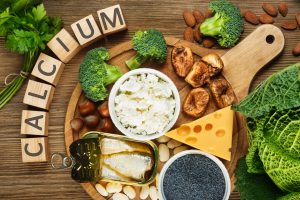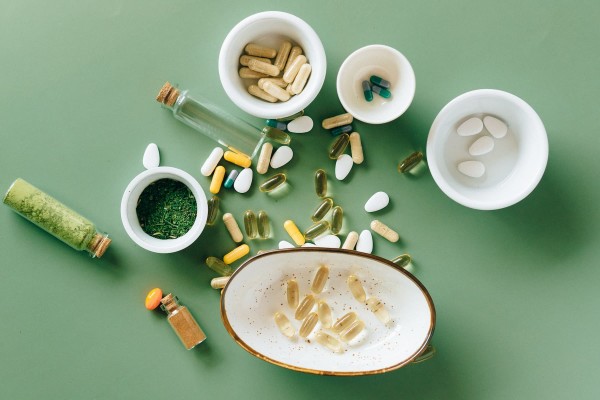Uncategorized
How to Enhance Your Performance with Post-Workout Supplements
How to Enhance Your Performance with Post-Workout Supplements
Post-workout nutrition is a critical factor in maximizing your training gains, aiding recovery, and preparing your body for the next challenge. While pre-workout supplements help fuel your body and provide energy before hitting the gym, post-workout supplements are designed to help repair muscles, replenish glycogen stores, and reduce soreness. Incorporating the right post-workout supplements can play a key role in improving overall performance and ensuring faster recovery.
In this article, we’ll dive into the essential post-workout supplements and how they can enhance your performance. Whether you’re lifting heavy, running long distances, or engaging in high-intensity interval training (HIIT), the right post-workout strategy can support your fitness goals.
1. Protein Powder: Building and Repairing Muscle
Why It’s Important:
Protein is essential for muscle repair and growth after a workout. When you exercise, especially during strength training or high-intensity activities, your muscles experience microscopic tears. Protein helps rebuild these tears, promoting muscle growth and reducing muscle breakdown.

How to Use It:
The most common types of protein powders are whey, casein, and plant-based options like pea or soy protein. Whey protein is absorbed quickly by the body, making it an excellent option for post-workout supplementation. On the other hand, casein protein digests more slowly, making it better suited for nighttime recovery. For those following a plant-based diet, pea or brown rice protein are great alternatives.
A typical post-workout dose of protein is around 20–30 grams. This amount helps stimulate muscle protein synthesis, enhancing recovery and growth.
Tip: Combine protein with carbohydrates after exercise to maximize muscle repair and energy replenishment.
2. Branched-Chain Amino Acids (BCAAs): Reducing Muscle Soreness and Fatigue
Why It’s Important:
BCAAs—leucine, isoleucine, and valine—are essential amino acids that the body cannot produce on its own. These amino acids are directly involved in muscle protein synthesis and can help reduce muscle damage during and after a workout. By supplementing with BCAAs post-workout, you can reduce muscle soreness, improve recovery time, and potentially reduce muscle fatigue.
How to Use It:
A typical dose of BCAAs ranges from 5–10 grams post-workout. They can be taken in powder or capsule form. Some BCAA supplements also contain added electrolytes to help with hydration.
Tip: Taking BCAAs before or during your workout can also help prevent muscle breakdown during exercise.
3. Creatine: Boosting Strength and Power
Why It’s Important:
Creatine is one of the most studied and effective supplements for improving strength, power, and overall athletic performance. It helps replenish ATP (adenosine triphosphate), the primary energy source for your muscles during high-intensity activities. While creatine is typically known for its performance-boosting benefits during exercise, it can also aid in recovery by helping your muscles rebuild faster after a workout.
How to Use It:
The most common form of creatine is creatine monohydrate, which has been shown to be both safe and effective. A typical post-workout dose is 3–5 grams. Creatine can be mixed with water or added to your protein shake for convenience.
Tip: You can take creatine at any time of day, but post-workout is ideal, as your muscles are more receptive to nutrients, including creatine, immediately after exercise.
4. Carbohydrates: Replenishing Glycogen Stores
Why It’s Important:
Carbohydrates are the body’s primary source of energy during exercise. After an intense workout, your body’s glycogen stores (the stored form of glucose) are depleted. To optimize recovery and replenish energy stores, it’s important to consume carbohydrates post-workout. This helps restore glycogen levels and improve your endurance for your next training session.
How to Use It:
The ideal amount of carbs to consume after a workout depends on the intensity and duration of the exercise. For moderate exercise, 30–50 grams of carbohydrates should suffice, while for endurance athletes or those who engage in intense training, this number can increase to 70–100 grams or more.
Tip: Choose complex carbohydrates like oats, sweet potatoes, or whole grains for sustained energy release. If you need quick recovery, fast-digesting carbs like fruits or a sports drink can be effective.
5. Electrolytes: Rehydrating and Balancing Fluids
Why It’s Important:
Electrolytes (sodium, potassium, calcium, and magnesium) are essential for maintaining fluid balance in the body, regulating muscle function, and preventing dehydration. During exercise, especially in hot conditions or after prolonged activity, electrolytes are lost through sweat. If not replenished, dehydration can lead to cramping, fatigue, and longer recovery times.
How to Use It:
You can find electrolyte supplements in the form of powders, tablets, or drinks. Some protein or BCAA supplements include electrolytes as well. It’s typically recommended to consume 200–500 mg of sodium and 100–200 mg of potassium post-workout, depending on the level of your exertion.
Tip: Drink an electrolyte-rich beverage or add an electrolyte supplement to your post-workout shake to maintain hydration and support muscle function.
6. L-Glutamine: Supporting Immune Function and Muscle Recovery
Why It’s Important:
L-glutamine is the most abundant amino acid in the body, and it plays a crucial role in muscle recovery and immune system support. After intense exercise, glutamine levels can drop, making supplementation beneficial for those who train regularly. L-glutamine helps reduce muscle soreness, improve recovery, and support gut health, which can be compromised by intense physical stress.
How to Use It:
A typical post-workout dose of L-glutamine ranges from 5–10 grams. It’s commonly available in powder form and can easily be added to your post-workout shake or beverage.
Tip: L-glutamine can also support digestive health, so it’s an excellent supplement for those who may suffer from gut discomfort after strenuous workouts.
7. Tart Cherry Juice: Reducing Inflammation and Muscle Soreness
Why It’s Important:
Tart cherry juice is rich in antioxidants, particularly anthocyanins, which have been shown to reduce inflammation and muscle soreness after intense exercise. Several studies have found that tart cherry juice supplementation can reduce muscle damage, soreness, and improve overall recovery, making it an excellent post-workout option for athletes and fitness enthusiasts.
How to Use It:
To get the most benefit, aim for 8–12 ounces of tart cherry juice within 30–60 minutes after your workout. You can find tart cherry juice in both liquid and concentrate forms.
Tip: Drinking tart cherry juice regularly can also help improve sleep quality due to its natural melatonin content, aiding overall recovery.
8. Vitamin C and E: Antioxidant Support for Recovery
Why They’re Important:
Vitamins C and E are antioxidants that help fight oxidative stress caused by intense physical exertion. These vitamins can help reduce muscle damage, alleviate inflammation, and improve recovery time by neutralizing free radicals. Antioxidants play a key role in supporting your body’s natural healing processes and preventing long-term damage from chronic exercise-induced oxidative stress.
How to Use It:
Vitamin C is best consumed in doses of 500–1,000 mg, while vitamin E is typically taken in doses of 200–400 IU post-workout. Both can be found in supplement form or through whole foods like citrus fruits, berries, nuts, and leafy greens.
Tip: While these vitamins are beneficial, it’s important not to overdo it, as excessive amounts can interfere with the body’s natural inflammatory response to exercise.

Conclusion
Post-workout supplementation is a powerful tool to optimize recovery, rebuild muscle, and enhance your overall performance. By incorporating the right supplements into your post-workout routine, you can reduce muscle soreness, speed up recovery, and prepare your body for your next workout. Protein powder, BCAAs, creatine, carbohydrates, electrolytes, and other supplements can make a noticeable difference in your training outcomes.
Remember, consistency is key. Along with post-workout supplements, ensure that you’re eating a balanced diet, staying hydrated, and getting enough sleep to fully support your fitness goals. Always consult with a healthcare professional or a sports nutritionist if you’re unsure about which supplements are best for your specific needs. With the right supplementation and recovery practices, you’ll be on the fast track to achieving peak performance.


